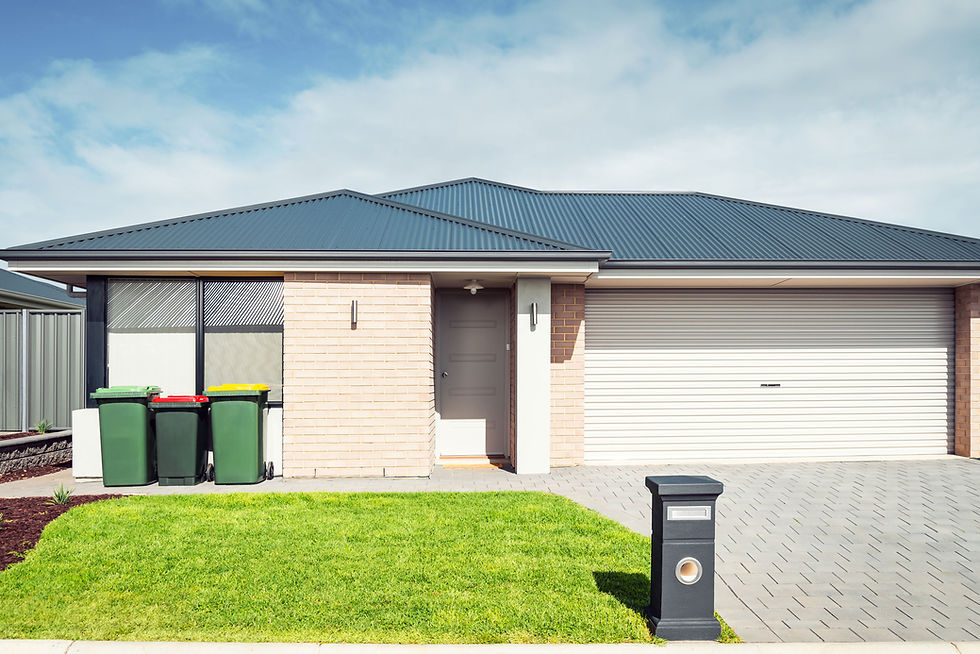The Role of Insulation in Roofing: Why It Matters
- Dardanoi Group
- May 23, 2024
- 3 min read

When it comes to maintaining a comfortable, energy-efficient home, insulation plays a crucial role in the performance of your roofing system. Proper insulation not only helps regulate indoor temperatures but also protects your roof and reduces energy costs. Here’s a detailed look at why insulation matters in roofing and how it benefits your home.
1. Energy Efficiency
Insulation is a key component in improving your home’s energy efficiency. It acts as a barrier to heat flow, helping to keep your home warmer in the winter and cooler in the summer. This reduces the need for heating and cooling systems to work overtime, which in turn lowers your energy bills.
Winter: Insulation helps prevent heat from escaping through the roof, keeping your home warmer and reducing heating costs.
Summer: It minimizes the amount of heat entering your home from the roof, keeping your interior cooler and lowering air conditioning expenses.
2. Enhanced Comfort
Proper insulation contributes to a more comfortable living environment by maintaining consistent indoor temperatures. Without adequate insulation, rooms can become too hot in the summer and too cold in the winter, leading to discomfort and uneven temperatures throughout your home.
3. Roof Protection
Insulation also plays a vital role in protecting your roof. By regulating temperature and moisture levels, it helps prevent common roofing issues such as:
Ice Dams: In colder climates, insufficient insulation can lead to the formation of ice dams. These occur when heat escapes through the roof, melting snow that refreezes at the eaves, causing water to back up and potentially leak into your home.
Condensation: Proper insulation helps control the temperature differential between the inside and outside of your home, reducing the risk of condensation that can lead to mold, mildew, and wood rot.
4. Noise Reduction
Insulation can also help reduce noise from outside, making your home quieter and more peaceful. This is particularly beneficial if you live in a noisy area or have a metal roof, which can be louder during rain or hailstorms.
5. Environmental Impact
By improving your home’s energy efficiency, insulation reduces the overall energy consumption, leading to a smaller carbon footprint. This contributes to environmental conservation efforts and aligns with sustainable living practices.
Types of Roofing Insulation
There are several types of insulation materials that can be used in roofing, each with its own advantages:
Fiberglass Insulation: Made from fine glass fibers, this is a common and cost-effective option for both attics and roofs. It’s available in batts, rolls, and loose-fill forms.
Spray Foam Insulation: This type provides excellent air sealing and high R-values (a measure of insulation’s effectiveness). It expands to fill gaps and can be used in hard-to-reach areas.
Rigid Foam Insulation: Often used in low-slope roofs, rigid foam boards provide high insulating values and are resistant to moisture. They are commonly made from polystyrene, polyisocyanurate, or polyurethane.
Reflective or Radiant Barrier Insulation: This type of insulation is typically used in hot climates. It reflects radiant heat away from the roof, keeping the home cooler.
Best Practices for Insulating Your Roof
Proper Installation: Ensure that insulation is installed correctly to maximize its effectiveness. Gaps, compression, or inadequate coverage can significantly reduce its performance.
Ventilation: Adequate roof ventilation is essential to prevent moisture buildup and ensure the longevity of your roofing materials. It helps balance temperature and air pressure, reducing the risk of condensation and ice dams.
Regular Inspections: Periodically inspect your insulation for signs of damage, moisture, or pest infestation. Address any issues promptly to maintain its effectiveness.
Insulation is a critical component of a well-functioning roofing system. It enhances energy efficiency, comfort, and protection for your home, while also contributing to noise reduction and environmental sustainability. By choosing the right type of insulation and ensuring proper installation and maintenance, you can enjoy a more comfortable living environment and extend the lifespan of your roof. Investing in quality insulation is a smart decision that pays off in reduced energy costs and improved home value.





Comments